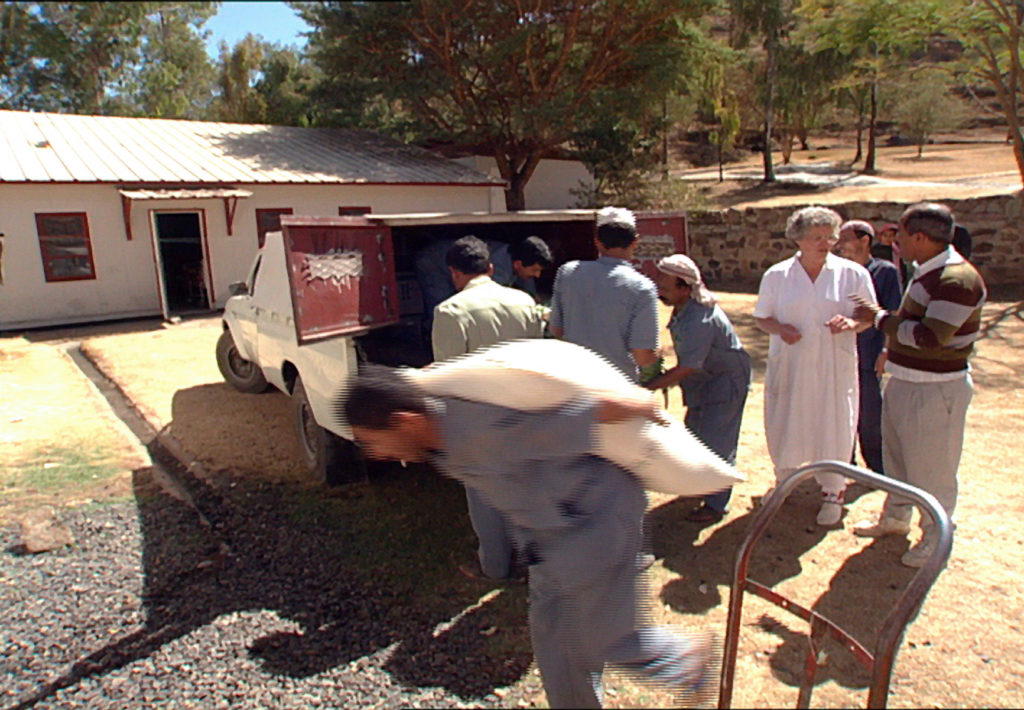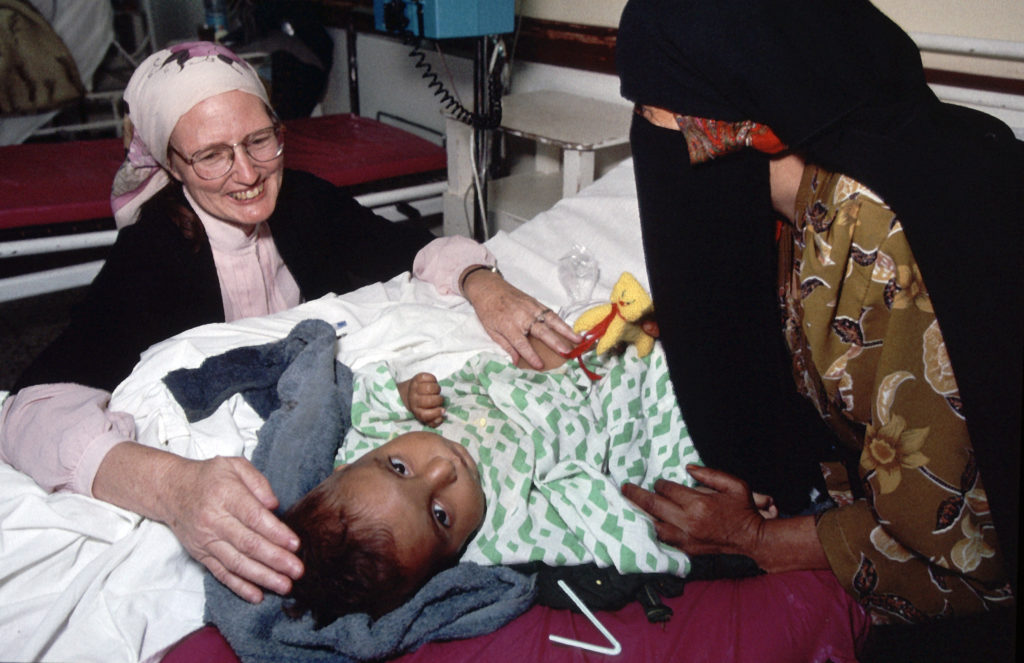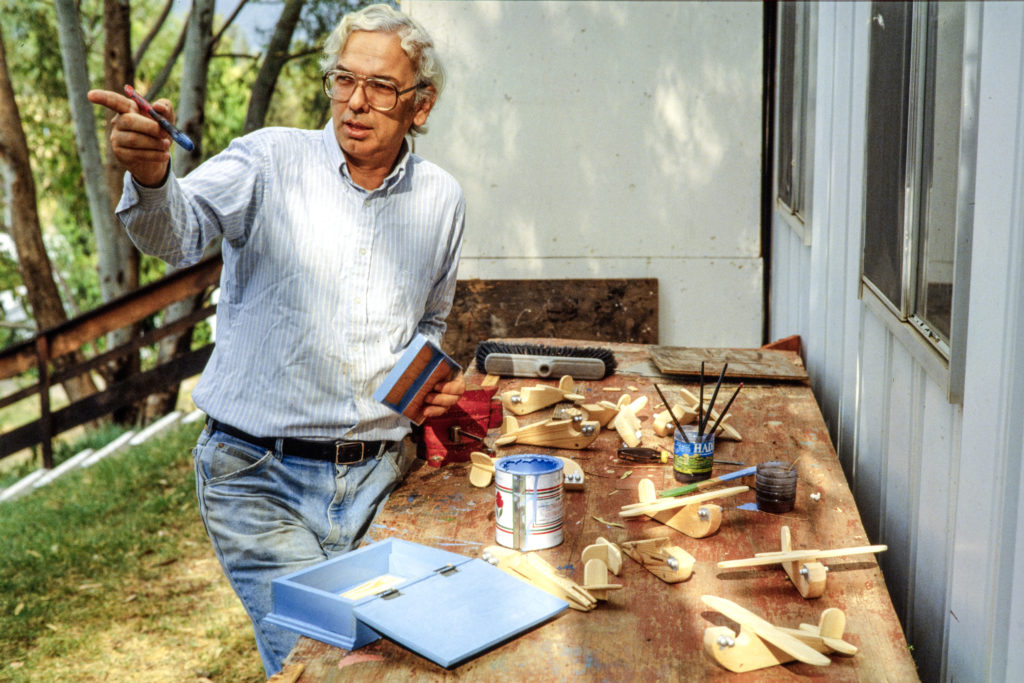Editor’s note: Dec. 30, 2022, marked the 20th anniversary of the attack on Jibla Baptist Hospital in Yemen that claimed the lives of three missionaries. On Dec. 30, 2002, an Islamic militant shot and killed IMB missionaries Kathleen Gariety, Bill Koehn and Martha Myers. The IMB continues to remember their sacrifice for the Yemeni people. Layton Avenue Baptist Church in Milwaukee, Wisconsin, held a remembrance service for Gariety on Dec. 30. Gariety was a member of Layton Avenue. The IMB remembers each of the fallen.
A small group met Friday, Dec. 30, 2022, at Layton Avenue Baptist Church in Milwaukee to remember the life and ministry of Kathy Gariety. Along with two other International Mission Board (IMB) medical workers, Bill Koehn and Dr. Martha Myers, Kathy was killed 20 years ago when a Yemeni man slipped into the Baptist Hospital in Jibla, Yemen. He said he killed them “because they were preaching Christianity in a Muslim country” and “to get closer to God.”

Kathleen Gariety was the purchasing agent for Jibla Baptist Hospital in Jibla, Yemen. She was 53 at the time of her death. Gariety was a leader of the youth ministry of Layton Avenue Baptist Church in Milwaukee, Wisconsin. IMB Photo
I’ll never forget the morning the story hit the U.S. news. Our family had joined friends to see the sights in Washington D.C., and my friend and I were downstairs eating the free hotel breakfast and drinking coffee, waiting on our wives and daughters. Casually, I picked up the newspaper and was stunned by an article on the front page. A cold shiver ran down my back when I first saw Yemen, then Jibla, and finally, the Baptist hospital. Quickly, I scanned the page and saw in disbelief, “Kathy Gariety.”
Kathy had been a beloved member and leader of the youth ministry at Layton Avenue Baptist Church when God called her to missions in her early 50s. At last week’s service, Jenni Schwager gave testimony to Kathy’s ministry and influence on her life as her youth leader.
“I was scared to death for her to go off to a far-off country,” she shared
“I think of her often,” said Schwager. “I pass this photo in my hallway every day. She’s looking at a camel with a great big smile on her face. She was a wonderful mentor to me, and I don’t think I even got to say that to her when she was alive.”

Martha Meyers tends to a patient at the Jibla Baptist Hospital in Jibla, Yemen. Meyers was from Mobile, Alabama, and had been a doctor for 24 years. She specialized in obstetrics and gynecology but treated men, women and children for a variety of needs. She was 57 at the time of her death. IMB Photo
Kathy didn’t choose an easy way. She heard God’s call but didn’t know where God wanted her to go. The IMB presented her with a list of around 100 possible places she could pray about going to serve. Any of those sites would have been easier and more glamorous, but Kathy didn’t choose a glamorous or easy place. She could have chosen Paris or a tropical paradise, but instead, she chose a place so difficult that it eventually cost her her life. To paraphrase Jerry Rankin, the president of the IMB at the time, “her life was given, not taken.”
In the months after Kathy’s death, we learned she did not give her life in vain. The murderer was at least partially correct. As the early Christian theologian Tertullian said, “The blood of the martyrs is the seed of the church.” There was a movement of God in that very dark place, and people came to know Jesus in part because of Kathy’s life and death.
A year or so after Kathy was murdered, an IMB worker gave the words of a song to a musician in one of our Minnesota-Wisconsin Baptist Convention churches. The words came from a woman who had been imprisoned for her faith in the darkness and solitude of an underground cell. She said that God had given her a song to encourage her. The musician wrote a tune to words he did not understand, and the song was played for the woman. When she heard the song, she was stunned with emotion.
“That’s the song. That’s the song that I heard,” she said.

Bill Koehn served as the hospital administrator for the majority of his 28 years in Yemen. Koehn was from Arlington, Texas, and was 60 at the time of his death. Koehn loved making wooden toys for children in an orphanage. IMB Photo
God does indeed work in mysterious ways. A Scripture verse comes just when we need it. A song encourages us. A testimony reminds us of the power of God. God calls a middle-aged woman who gives herself to a seemingly insignificant place, and then God does a most significant work through her — the light shines in the darkness. Sacrifice and significance, who can understand the real cost and the real victory but God?
Fewer people recognize Kathy’s name anymore, and that saddens me, but I doubt that would matter much to her. She moved to Yemen and gave her life not so that she would be remembered, but instead so that Jesus would be made known.
On my four-hour drive home from Milwaukee, I contemplated Kathy’s life and mine. I ultimately considered the lives and ministries of scores of our leaders throughout Minnesota and Wisconsin. We too have been called to what seem insignificant roles and places. Only a few will remember our names. Fewer still will know what we sacrificed or what God did through us. None of us will correctly understand the impact or significance of our lives, but none of that matters. People will still know Jesus because we gave our lives, not so that we might be remembered, but so that Jesus might be made known.

